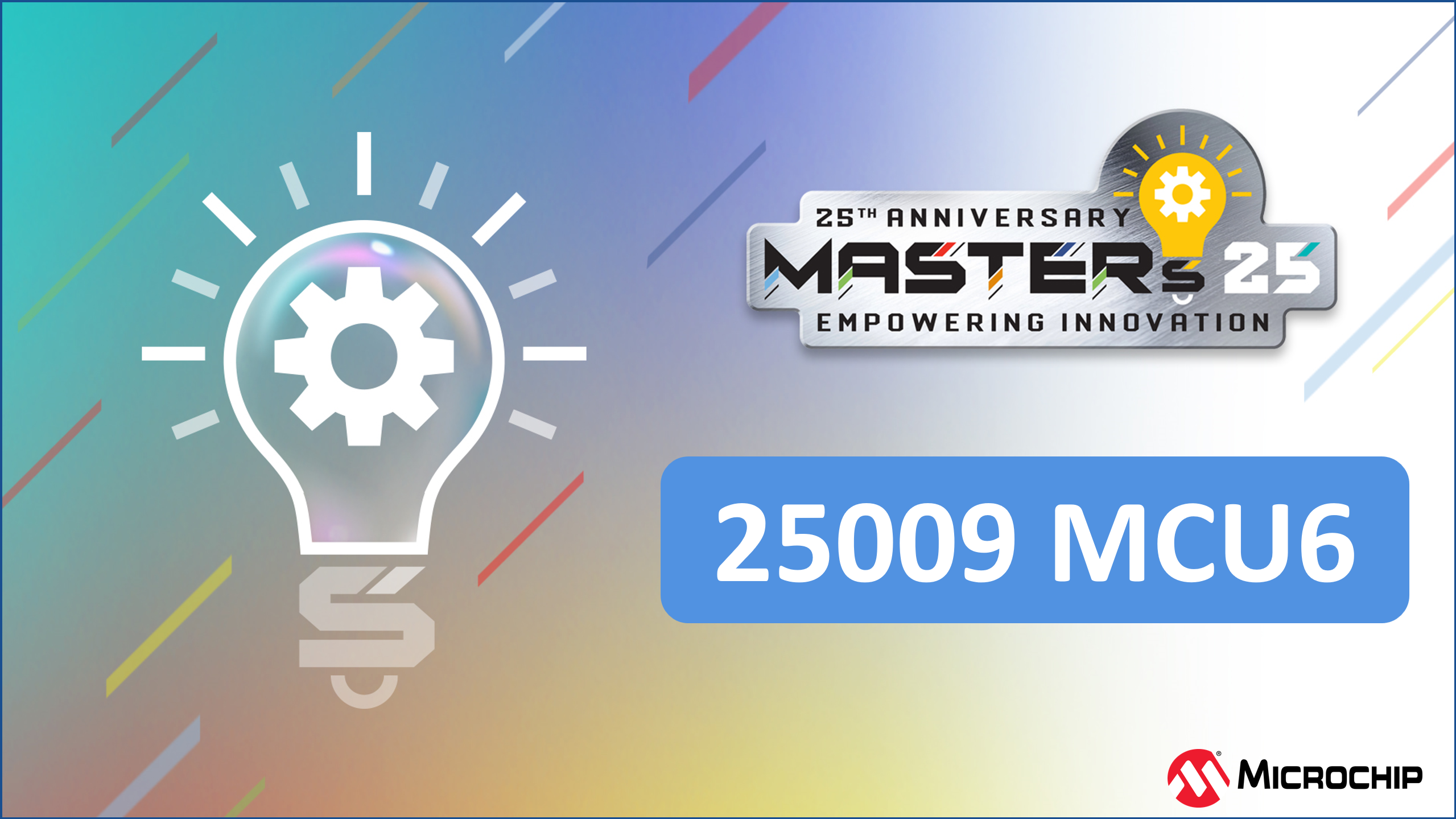-
About this course
- Class Overview
-
Syllabus & Downloads
-
Introduction 2 min
-
Introduction to Low-Power Operations 6 min
-
PIC32CM LE00 Curiosity Pro Current Measurement Setup 3 min
-
LAB1: Open Default MPLAB® Code Configurator Project and Measure the Baseline Current 3 min
-
Active Mode Light Sensor Project 24 min
-
Active Mode System Block Diagram 2 min
-
LAB2: Active Mode Light Sensor Project and Average Current Measurements 5 min
-
Add Standby Mode 4 min
-
Standby Mode System Block Diagram 6 min
-
Standby Mode Timeline Walkthrough 5 min
-
LAB3: Standby Mode Light Sensor Project and Average Current Measurements 5 min
-
Sleepwalking Light Sensor Project 18 min
-
Sleepwalking Timeline Walkthrough 11 min
-
LAB 4: Sleepwalking Light Sensor Project and Average Current Measurements 7 min
-
Summary 2 min
- Complete Recording
-
25009 MCU6 (112 min)

25009 MCU6: Low-Power Design with Microchip's Arm Cortex Microcontrollers: Essential Techniques (August 2025)
This class outlines the essential techniques for low-power applications design with Microchip's ARM Cortex microcontrollers including sleep modes, automatic clock request systems, power domains and triggering
This is a recording of the course 25009 MCU6 - Low-Power Design with Microchip's Arm Cortex Microcontrollers: Essential Techniques that was presented at the 2025 MASTERs Conference.
In this class, you will learn essential techniques for low-power applications design with Microchip's ARM Cortex microcontrollers including: sleep modes, automatic clock request systems, power domains / regulator selection, and inter-peripheral communication / triggering using the event system. In the hands-on labs in this class you will start with an active mode light sensor application example (no low power techniques utilized) and use MCC/Harmony to progressively apply microcontroller sleep modes, power management systems, and peripheral automation of tasks to reduce the power consumption. At each step along the way you will measure and observe the reduction in power consumption obtained from utilizing each low power technique.
Prior experience with embedded systems development, MPLAB X, using C for embedded microcontrollers, and MCC/Harmony is beneficial
